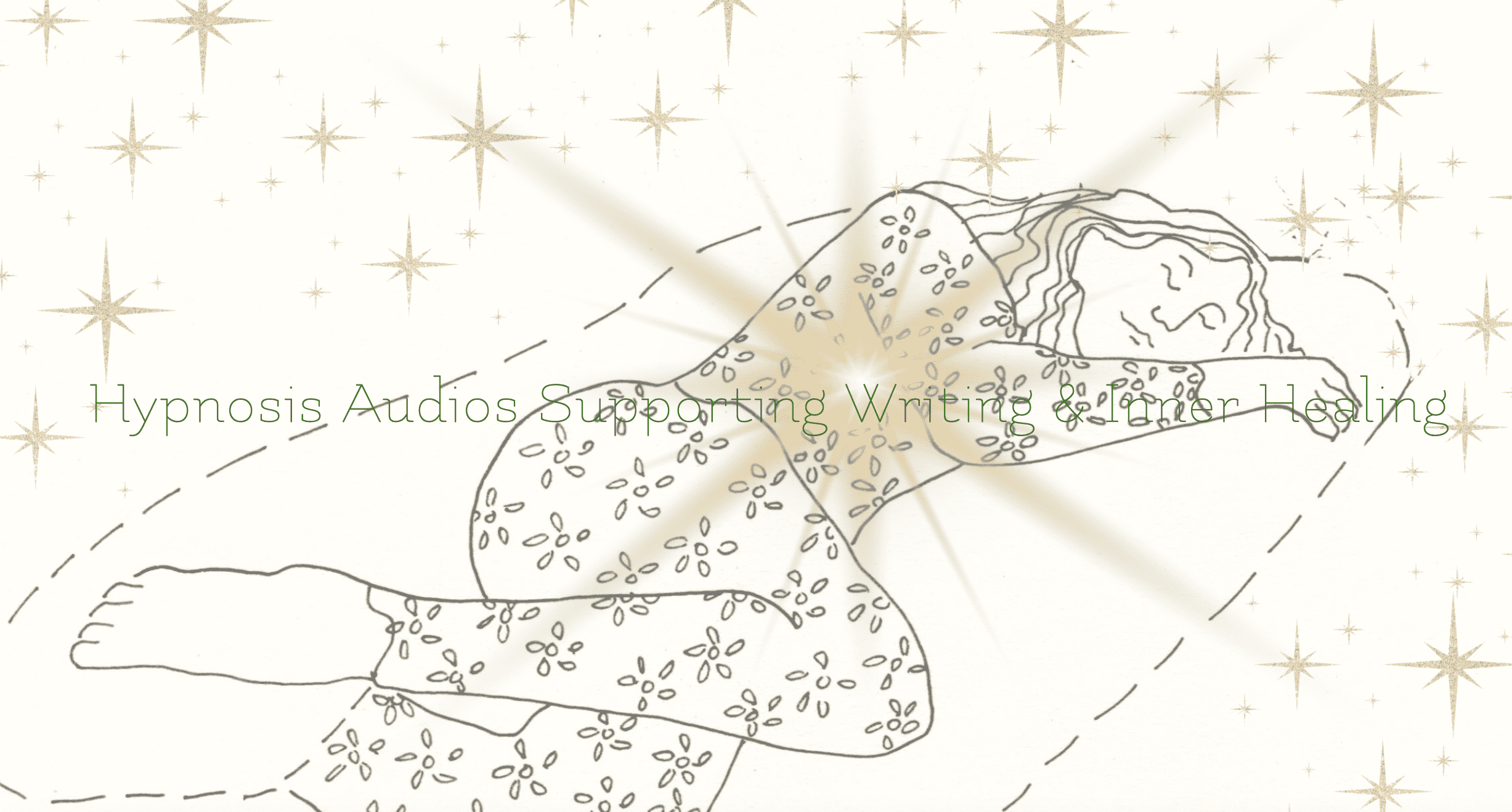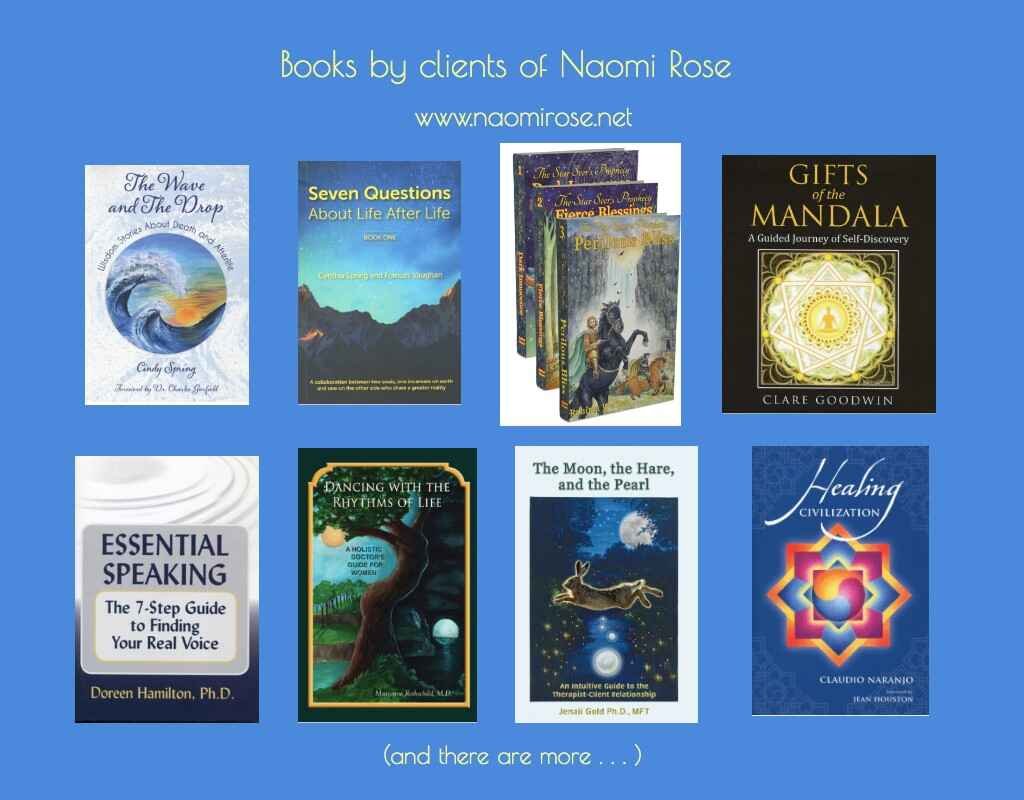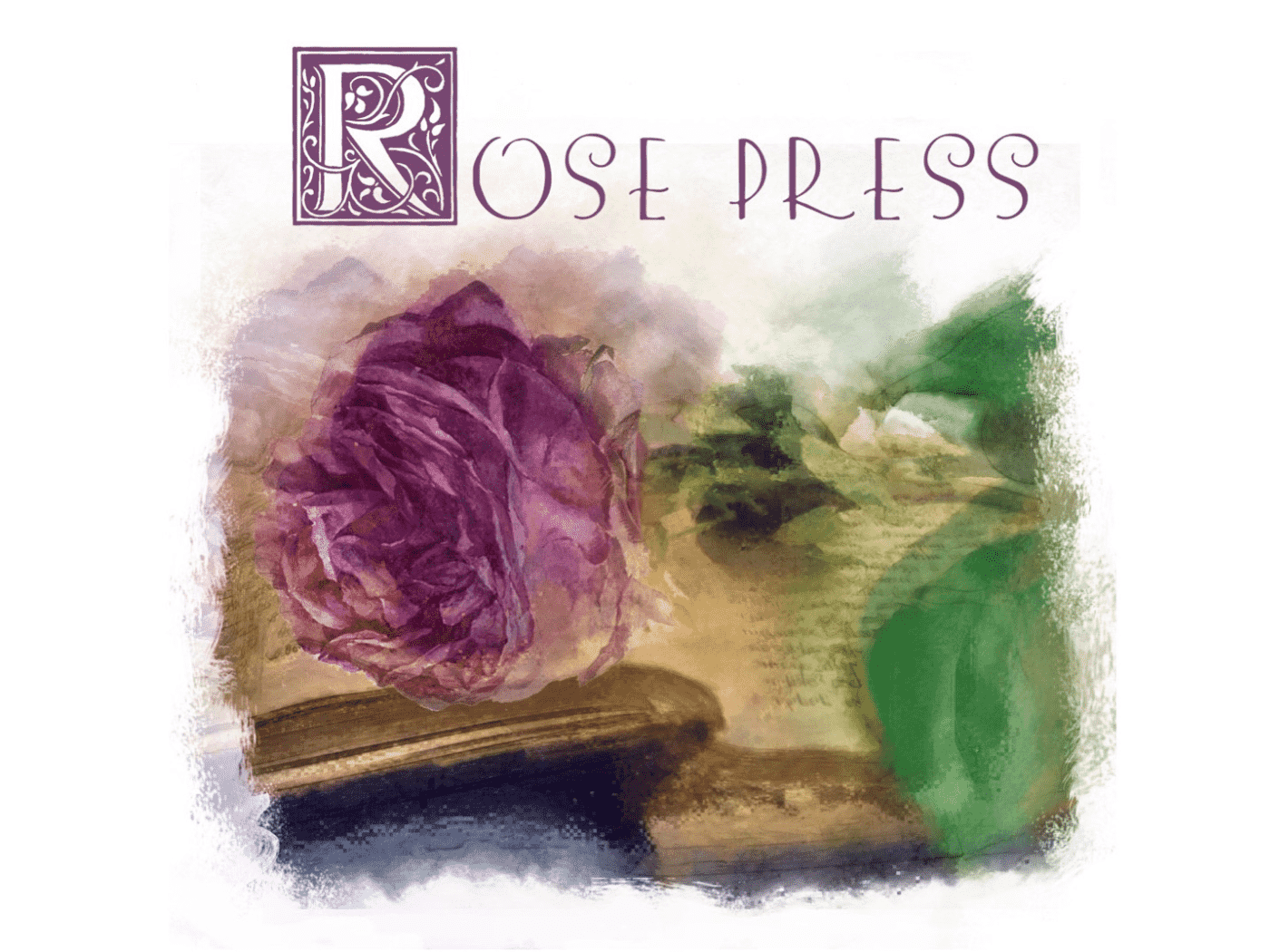Part 1 of 3
/You’ve probably heard the saying, “Genius is 1 percent inspiration and 99 percent perspiration.” While there’s something to be said about the need for both, I believe it’s essential — and healing! — to give more attention to the “inspiration” aspect.
When you’re inspired, it’s as if something is going ahead of you, leading the way, and you are 100 percent committed to going with it. You feel connected to something larger, deeper, truer, beyond your usual way of seeing life; you get to interact with an aspect of your being that may lie hidden under the usual, more prosaic responsibilities and concerns.
Not only do you emerge with something tangible out of being inspired – be it a painting, a great meal, a song, a piece of writing, or (in this case) an entire book – but the process itself can be truly inspiring. Your breath changes along with the words that come, and this breathing in – this in-spir-ation – is spirit making its way into your creative life. Which is what it wants to do. Inspiration is not holding out on you; but sometimes you need to help it along.
Especially when writing a book, which is a long-term relationship (vs. the “quick date” of, say, a blog) – whether you are hoping to do so or are already in the midst of doing so – it’s so very important to keep inspiration alive. Otherwise you’ll begin with a bang and end with, as they say, a whimper. Why subject yourself to that?
Inspiration is essential at the start of writing your book, but equally so throughout. Just because you’re midstream with your creation doesn’t mean your inspiration has flown the coop. You just need to return to those places where it is likely to surface; or, more accurately, where you are likely to be open to it, since the spirit of inspiration is an ongoing flow that’s always available – if you know where to look for it, how to take it in, and what to do with it.
There are many ways to connect with inspiration for your book. I have 12 for you, in all:
1. Breathe with awareness.
2. Let what you love be your book’s rudder.
3. Give your book a title that inspires you.
4. See what else you love that you can hitch your wagon to, and whose gifts you can bring into your experience of writing.
5. Don’t push (the river).
6. Get back in the flow by re-reading what you already wrote.
7. Take showers with pen and paper close by.
8. Clean your house—without guilt!
9. Let your writing “cook” while you’re doing other things.
10. Write down what gives itself to you in the moment it gives itself to you, without concerning yourself right then with where in the book it belongs.
11. Sing.
12. Think of your book with love and encouragement, even when you’re not writing. Bless your book.
We’ll go into these four at a time. . . .
Inspiration is essential at the start of writing your book, but equally so throughout.
Just because you’re midstream with your creation doesn’t mean your inspiration has flown the coop. You just need to return to those places where it is likely to surface; or, more accurately, where you are likely to be open to it, since the spirit of inspiration is an ongoing flow that’s always available – if you know where to look for it, how to take it in, and what to do with it. Here are the first 4 of the 12 ways to get and stay inspired when writing your book:
1. Breathe with awareness.
2. Let what you love be your book’s rudder.
3. Give your book a title that inspires you.
4. See what else you love that you can hitch your wagon to, and whose gifts you can bring into your experience of writing.
1. Breathe with Awareness
Breathing is automatic — you’re alive, without having to work at it. But bringing awareness to your breathing makes a profound difference.
When you can sense in the moment what it feels like to breathe — how deep or shallow your breathing is, where your body rises and falls, and how your breathing actually responds to your awareness — you come closer to recognizing that your breathing itself changes because you are paying attention to it. Where it, before, was just background, now it’s the greatest show on earth.
The more attention you pay to it, the more subtle nuances give themselves to you. And the rhythm of your breathing tends to even out, to slow down. A slower rhythm of breathing gives the spirit animating your body and mind more opportunity to bring you its gifts.
Whether you enter this aware breathing with a simply open mind relative to your book — e.g., “I’ll accept whatever I receive, then write it down” — or you enter with a topic for your book you want inspiration about, or a question you want answered, bringing your awareness to your breath will open the door to inspiration.
Whether it comes in the moment or later on, say when you’re washing the dishes, your attention to your breathing — in itself a gift from spirit, the gift of Life — will infuse your awareness with something relevant to your book that can guide and uplift you.
When you write it down in this state, you will know firsthand what in-spiration feels like.
2. Let What You Love Be Your Book’s Rudder
Whether your book is partly written or still unwritten, connecting with what you love when writing your book (even just thinking about writing) will make a big difference in terms of your enthusiasm and readiness to give yourself to the writing.
It’s possible that your first impulse to write this particular book is love:
“I love this topic,” or
“I really want to dig into this matter,” or
“I know there’s a lot of misguidedness and suffering that might need to be addressed, but behind it all is love, and I want to bring that out. . . .”
And so on.
But the next inner movement might be (as often happens) doubt and/or fear: what happens when the outgrown child’s-eye view of protection, the “superego,” tries to stop you from making a fool of yourself, going out on a limb, being naïve, and any of its reasonable-in-the-moment-sounding ploys to protect a defenseless child from having its heart broken — again.
Except that you are not actually this defenseless child any more, and the superego has a skewed view of what is possible, and who you are.
If you protect yourself by not writing about what you love, in a state of love, you also block out the inspiration that comes naturally with letting yourself love what you love. So while you might lose track of this loving in the course of writing over time, if you have the intention to let love be your rudder it will guide you back to it over and over and over again.
This will reinspire you, and the place in you that is wired for love — that is love — will resurface and go ahead of you, bring you treasures from your memory, your imagination, and the mystery of Creation itself.
3. Give your book a title that inspires you.
It doesn’t have to be the final title, necessarily; it can be what’s called a “working title,” what you hold in mind and heart as you write until something more fitting offers itself in the course of your writing.
A title is, among other things, a place-holder. Not only does it evoke the essence of your book; every time you think about the title, you are brought back into contact with something you really care about and want to explore.
This is especially helpful during those time lags that can happen between your times of actually writing. The longer the time lags, the more procrastination-guilt can set in, and the harder it can seem to get back into the writing.
If you have a title that inspires you, telling yourself the title’s name from time to time will keep it alive in you, feeding a flame that might otherwise get buried under the to-do lists of daily life. Then you are likely to remember, “Oh yes, I do care about that. I want to get back to that.”
This has happened with me with the book I’m currently writing, and have been for some time. It’s gone through quite a few metamorphoses, and sometimes the title has changed along with the conception of the book.
When it was called What Musical Harmony Can Teach Us about Harmonious Human Relationships, the writing tended to lie in my computer, not particularly inspiring me to get back to it — even though it seemed like this was the focus of the book.
But when I came across a line in a poem by Rumi that jumped out at me and said, “Choose me!”—in other words, that inspired me—I changed the title to The Place Where Everything Is Music.
This inspires me in its own right; and on days when writing the book seems far away, simply thinking, “The place where everything is music” will lead me to contemplate, “What is the place where everything is music? How do I get there? And what does it have to do with my book?”
And then a line, or a phrase, or a paragraph, or an image will come to me as a gift — or an answer to my contemplation — and I will race for a pen and paper, or to my typewriter (I still have one, in addition to my computer; it’s more like a musical instrument) and write what comes for as long as it comes.
So having a title that inspires you can befriend and inspire you throughout the long relationship of writing a book. If your current title doesn’t inspire you . . . ask for inspiration. (And keep reading these suggestions; maybe one will be the one you need now.)
4. See what else you love that you can hitch your wagon to, and whose gifts you can bring into your experience of writing.
Who doesn’t have some degree of “stuff” around writing?
If you went to school and had to churn out papers, then be graded, you probably have some “stuff” around writing, at least to the extent that you don’t say, “Wow, I really want to hear what’s in me about this subject. I’m going to spend the next hour writing, and love every moment of it!”
We would hope you’re heading in that direction; but it’s likely to be a process.
However . . . there is probably something else that you love without complication, something that simply calls you and you gladly come.
It could be gardening;
It could be cooking;
It could be woodworking;
It could be singing your child or grandchild a lullaby.
Even if you’re working up a sweat digging planting holes, or painting furniture, or going for a brisk walk in nature, you are not working against yourself in any way. You are working in concert with what calls you to it.
This experience of moving in the direction of what you love and giving it to yourself without second-guessing or having to defend yourself to an “inner critic” is so natural, so simple, so beautiful that it can feel effortless.
It could be anything that you move towards willingly and wholeheartedly, without an interposing voice saying, “Now, you know that won’t really fly. Why don’t you back up and do it this way instead, so that you come out looking better?”
Here's one example from my own life
I love bringing beautiful colors into my home, within the reach of my budget. I want to paint an inherited blue reclining chair a dark green, to highlight and augment the existing touches of green in the living room. I have been researching how to paint upholstered furniture, and discovered a special paint that works for upholstered fabric. I’m going to buy the paint, and I look forward to doing the actual painting. And then I’ll get a tall indoor plant (obviously in green!) to go in that corner. It will lift the energy of the whole room. I can’t wait!
And then I can ask (and answer) myself:
“What are the qualities inherent in doing this that might translate to my writing?” Dreaming. Trying things out first in my mind. The pleasure of making things with my hands. Adventurousness. A love of harmony through color. A sense of "I don’t have to be stuck with what was handed down to me, I can transform it into what I love."
In your case, you might begin to notice which non-writing activities — both outer and/or inner — have an inspiring effect on you.
And then you might begin to notice what qualities are inherent in your doing these activities. You might even jot them down in a notebook that you dedicate as a “process notebook,” so you can be reminded of them when it comes time to write your book, and incorporate them any way you can.
The point is to let yourself become aware of what you already love to do — what you are drawn to gladly — and then start to mine the existing wonderful qualities that show up in you all decked out and glorious when you move in that direction, and see how you might invite them into the writing of your book. How will they surprise you when they show up?
Click here to continue with Part 2 (natural ways 5-8)
TO RETURN TO THE MAIN BLOG PAGE, CLICK HERE.












